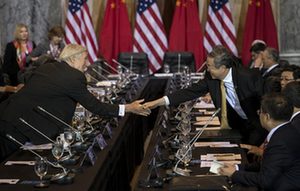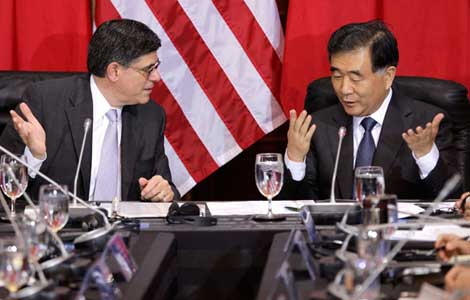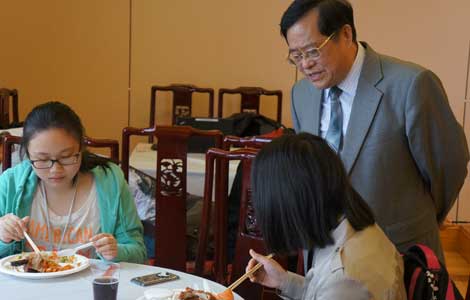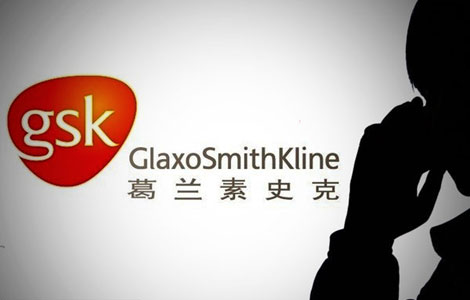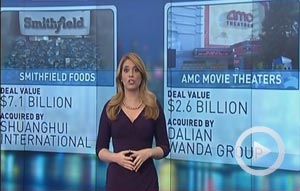European debt crisis opportunity for China’s outbound investment: KPMG
Updated: 2013-07-11 16:50
(chinadaily.com.cn)
|
||||||||
The deteriorating European debt crisis means opportunities for Chinese enterprises' overseas mergers and acquisitions, according to the global chairman of KPMG Global China Practice Peter Fung, hexun.com reported.
"I'm not sure how long the crisis will last, but it is certain that the longer it turns out to be, the more beneficial it becomes for Chinese enterprises," Fung said.
In 2012, German Chancellor Merkel predicted that the debt crisis will last for at least five years.
According to a report jointly released by KPMG and the China International Contractors Association, China's outbound investment is at a turning point, with more Chinese enterprises involved in M&A in developed countries.
The report pointed out that Chinese enterprises' M&A covered four sectors in 1995, 20 sectors in 2004, and 28 in the following years. Aerospace, public services, entertainment, medical treatment and catering are among the hot sectors in recent years.
"Huawei and ZTE's cases cannot represent the whole picture of Chinese enterprises' overseas situation. In the less sensitive areas, they have mass M&A opportunities," Fung said.
In April, six US governors came to China to attract investment. State laws are relatively independent, so Chinese enterprises would meet fewer obstacles.
"However, in the past 10 years, most of the Chinese enterprises are still investing cash instead of stock rights in their M&A. It’s mainly because the share prices of overseas listed companies are low and the targets being purchased need cash to exit, and also because the enterprises under crisis need cash flow," Fung told hexun.com.
As for the future of outbound investments, Fung said agriculture and food products, renewable energy, real estate, and high-end manufacturing will become the new hot sectors.
According to the report, during the country's 12th Five-Year Plan, China is going to set up more than 10 agriculture technology demonstration centers, send abroad 1,350 experts and technicians, and explore 10 million mu (666,667 hectares) to 30 million mu of agricultural land overseas; renewable energy enterprises are opening overseas subsidiaries to avoid trade barriers; real estate enterprises will also expand business in the overseas market, in order to avoid the country's macro-control; high-end manufacturing has been listed among China's seven strategic emerging industries and will have more supportive policies.
Although Chinese enterprises are expanding their overseas market rapidly, many still think that it is unrealistic to upgrade industries through M&A.
Fung also said that overseas M&A could help China's industries improve to a certain level, but only independent innovation can make them enter the top of the industry chain.
Due to differences in values and political systems among countries, the M&A may not be carried through successfully. On July 4, Missouri Gov Jay Nixon vetoed two bills that would allow China’s Shuanghui Group to acquire Smithfield Foods, because state law bans non-US enterprises from owning farmland.
"Chinese enterprises are facing many challenges in overseas M&A, which involves not only recruitment and distribution channel, but also image problems and the business environment. Experience shows that they should neither integrate into the overseas environment completely, nor export their own values blindly. In order to achieve their goals, both tasks should be carried forward at the same time," Fung said.
Most Viewed
Editor's Picks

|

|

|

|

|

|
Today's Top News
Saudi princess charged with US human trafficking
Asiana takes out apology ad in Chinese media
Asia spending too little on poor: report
Constructive mood at Sino-US talks
China, Russia consider increasing naval drills
No mechanical trouble on Asiana
More Americans favor immigration
Increased cooperation brings benefits
US Weekly

|

|
